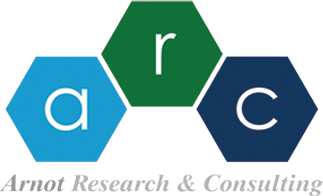Arnot JA, Toose L, Armitage JM, Sangion A, Looky A, Brown TN, Li L, Becker RA. 2022. Developing an internal threshold of toxicological concern (iTTC). J Expo Sci Environ Epidemiol https://doi.org/10.1038/s41370-022-00494-x
Berthiaume A, Arnot JA, Toose L. 2022. Risk-based prioritization of organic substances in the Canadian National Pollutant Release Inventory using an evaluative regional-scale multimedia mass balance model. Integr Environ Assess Manag. https://doi.org/10.1002/ieam.4601
Arnot JA, Toose L, Armitage JM, Embry ME, Sangion A, Hughes L. 2022. A weight of evidence approach for bioaccumulation assessment. Integr Environ Assess Manag. https://doi.org/10.1002/ieam.4583
Li L, Sangion A, Wania F, Armitage JM, Toose L, Hughes L, Arnot JA. 2021. Development and evaluation of a holistic and mechanistic modeling framework for chemical emissions, fate, exposure, and risk. Environmental Health Perspectives 129:12 https://doi.org/10.1289/EHP9372
Armitage JM, Toose L, Camenzuli L, Redman AD, Parkerton TF, Saunders D, Wheeler J, Martin A, Vaiopoulou E, Arnot JA. 2021. A critical review and weight of evidence approach for assessing the bioaccumulation of phenanthrene in aquatic environments. Integr Environ Assess Manag, 17: 911-925. https://doi.org/10.1002/ieam.4401
Li L, Westgate JN, Hughes L, Zhang X, Givehchi B, Toose L, Armitage JM, Wania F, Egeghy P, Arnot JA. 2018. A model for risk-based screening and prioritization of near-field human exposure to chemicals. Environ Sci Technol 52(24): 14235-14244 http://dx.doi.org/10.1021/acs.est.8b04059
Toose L., Warren C, Mackay D, Parkerton T, Letinski D, Manning R, Connelly M, Rohde A, Fritz B, Hoffmann WC. 2015. Assessing the fate of an aromatic hydrocarbon fluid in agricultural spray applications using the three-stage ADVOCATE model framework. Journal of Agricultural and Food Chemistry 63(31), 6866-6875 http://dx.doi.org/10.1021/acs.jafc.5b01076
Gouin T, Armitage JM, Cousins I, Muir D, Ng C, Toose L, Tao S. 2013. Influence of global climate change on chemical fate and bioaccumulation: The role of multimedia models. Environmental toxicology and chemistry. 32. http://dx.doi.org/10.1002/etc.2044
Arnot JA, Armitage JM, McCarty LS, Wania F, Cousins I, Toose-Reid L. 2011. Toward a consistent evaluative framework for POP risk characterization. Environ Sci Technol 45(1): 97-103 Special Issue on Environmental Policy: Past, Present and Future – Invited https://doi.org/10.1021/es102551d
Toose L, Mackay D. 2004. Adaptation of fugacity models to treat speciating chemicals. Environ. Sci. Technol. 38: 4619-4626. https://doi.org/10.1021/es049957i
Toose L, Woodfine DG, MacLeod M, Mackay D, Gouin J. 2004. BETR-World: A geographically explicit model of chemical fate: Application to transport of a-HCH to the Arctic. Environ. Poll. 128: 223-240. https://doi.org/10.1016/j.envpol.2003.08.037
As Liisa Reid:
Webster E, Ellis DA, Reid LK. 2010. Modeling the environmental fate of perfluorooctanoic acid and perfluorooctanoate: An investigation of the role of individual species partitioning. Environ. Toxicol. Chem. 29(7): 1466 – 1475. https://doi.org/10.1002/etc.181
Mackay D, Reid LK. 2008. Local and distant residence times of contaminants in multi-compartment models. Part I: A review of the theoretical basis. Environ. Poll. 156: 1196-1203. https://doi.org/10.1016/j.envpol.2008.04.012
Reid LK, Mackay D. 2008. Local and distant residence times of contaminants in multi-compartment models. Part II: Application to assessing environmental mobility and long-range atmospheric transport. Environ. Poll. 156: 1182-1189. https://doi.org/10.1016/j.envpol.2008.04.011
McMurdo C.J, Ellis DA, Webster E, Butler J, Christensen RD, Reid LK. 2008. Aerosol enrichment of the surfactant PFO and mediation of the water - air transport of gaseous PFOA. Environ. Sci. Technol. 42 (11), 3969–3974. https://doi.org/10.1021/es7032026
Ethier A, Mackay D, Toose-Reid L, Lean D, O’Discoll N, Scheuhammer A. 2008. The Development and Application of a Mass Balance Model for Total Mercury in a Remote Lake using Multi-species Multiplier Method. Appl. Geochem. 23: 467-481. http://dx.doi.org/10.1016/j.apgeochem.2007.12.015
